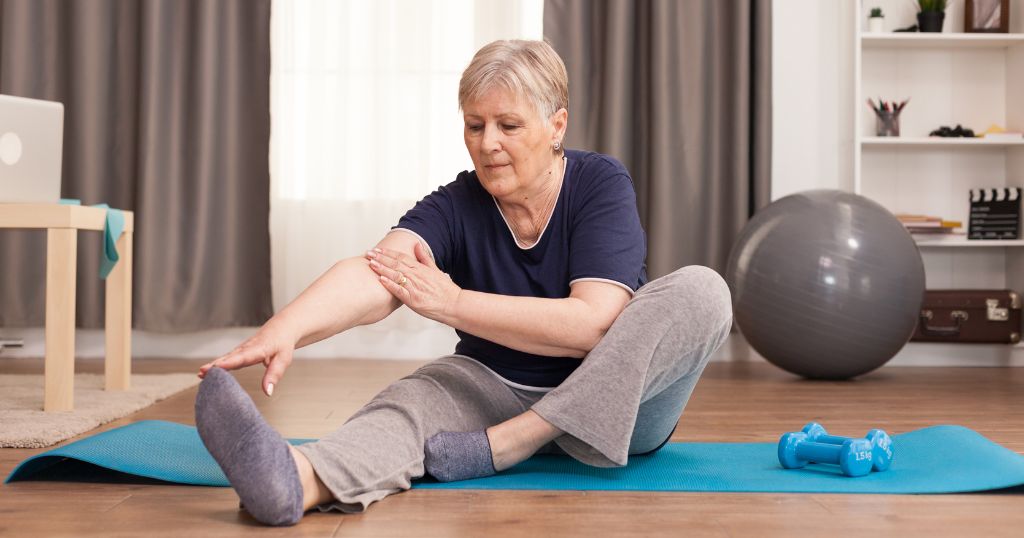Healthy knees In Old Age are vital for maintaining an active and independent lifestyle. As we grow older, our knees are more prone to issues like arthritis, joint pain, and decreased flexibility. Addressing these concerns early can help prevent further complications and enhance overall quality of life.
Common knee problems in the elderly include stiffness, swelling, and a reduced range of motion. Regular exercise, proper nutrition, and maintaining a healthy weight can significantly support knee health. By staying informed and proactive, you can help ensure your knees remain strong and functional as you age.
How do you prevent bad Healthy knees In Old Age
To prevent bad knees in old age, it’s important to stay active with low-impact exercises like walking or swimming. These activities strengthen the muscles around the knees and improve flexibility without putting too much strain on the joints. Maintaining a healthy weight is also crucial, as excess pounds can increase stress on the knees and lead to pain.
Additionally, incorporating a balanced diet rich in nutrients such as calcium and vitamin D can support joint health. Regular check-ups with your doctor can help catch and address any issues early. By combining these strategies, you can significantly reduce the risk of knee problems and enjoy a more comfortable and active life as you age.
Why Knee Health Declines with Age
Our knees are like machines that wear out over time. Years of walking, running, and standing put stress on the cartilage, the cushioning between bones. This cartilage naturally thins as we age, leading to less shock absorption and more friction.
Not only does cartilage change, but the fluid that nourishes our joints also decreases. This makes movement less smooth and can cause stiffness. Plus, weaker muscles due to aging put extra strain on the knees, increasing the risk of injury and pain.
The Role of Exercise in Maintaining Knee Health
Regular physical activity is a powerful tool for keeping knees healthy. Exercise helps strengthen the muscles around your knees, acting like natural shock absorbers. This support reduces stress on the joints, preventing wear and tear.
Low-impact exercises like walking, swimming, and cycling are gentle on the knees while improving overall fitness. Additionally, strengthening exercises target the muscles that support your knees. Building muscle mass helps stabilize the joint and reduces the risk of injuries.
Proper Nutrition for Knee Health
Nutrients like calcium, vitamin D, and omega-3 fatty acids are essential for strong bones and healthy joints. Calcium builds bone density, while vitamin D helps your body absorb it. Omega-3s have anti-inflammatory properties that can reduce joint swelling and stiffness.
Foods rich in antioxidants, such as berries, leafy greens, and fatty fish, can help combat inflammation. Additionally, staying hydrated is crucial for joint lubrication. Water helps cushion the cartilage and reduces friction, promoting smoother movement.
Importance of Regular Check-Ups
Regular check-ups with your doctor are key to keeping tabs on your knee health. These visits allow your doctor to assess any changes in your knee, such as swelling, pain, or stiffness. Early detection is crucial for managing knee problems effectively.
1 Early detection of knee problems
Catching knee issues early can make a big difference in treatment. Your doctor can identify potential problems like arthritis or tendonitis through exams and possibly imaging tests. Early intervention can help slow down the progression of these conditions and prevent more serious complications.
2 When to seek medical advice
If you experience persistent knee pain, swelling, or difficulty walking, it’s important to see a doctor. Sudden, severe knee pain, locking, or instability also warrant immediate medical attention. Don’t ignore any changes in your knee health, as early treatment can improve your long-term outlook.
The Impact of Footwear on Knee Health
Selecting the right shoes can significantly impact your knee health. Look for shoes with good arch support and cushioning to absorb shock and distribute pressure evenly. Avoid shoes that are too tight or too loose, as they can affect your foot alignment and put extra strain on your knees.
Orthotics, custom-made shoe inserts, can help correct foot problems like flat feet or high arches. By improving foot alignment, orthotics can reduce stress on your knees and alleviate pain. When choosing shoes, consider the activity you’ll be doing. Running shoes, walking shoes, and work shoes all have different features to support your knees for specific movements.
Alternative Therapies for Knee Health
Acupuncture and massage therapy offer relief for knee pain and improve joint health. Acupuncture uses thin needles to stimulate specific points in the body, which can reduce pain and inflammation. Massage therapy helps by relaxing tight muscles around the knee and increasing blood flow, which aids in healing.
The Role of Hydrotherapy in Joint Health
Hydrotherapy involves exercises performed in water, which can be gentle on the knees. The buoyancy of water reduces stress on the joints while allowing for effective exercise. This therapy can improve flexibility, strength, and overall knee function without causing extra strain.
Exploring Supplements Like Glucosamine and Chondroitin
Supplements such as glucosamine and chondroitin are often used to support knee health. Glucosamine helps maintain cartilage, while chondroitin can reduce pain and improve joint function. Both can be beneficial in managing knee health, especially when used alongside other treatments.
Conclusion
Maintaining Healthy knees In Old Age is essential for an active and comfortable life. Key strategies include choosing supportive footwear, using orthotics to address specific needs, and adapting shoes to various activities. Proactively managing knee health by staying active with low-impact exercises and monitoring body weight can significantly reduce the risk of pain and injury. By adopting these practices, you can enhance your mobility and enjoy a higher quality of life well into your later years.
FAQS
Are bad knees reversible?
Bad knees can’t always be fully reversed, but symptoms can be significantly managed with targeted treatment and lifestyle changes. Early intervention helps improve function and prevent further damage.
Is walking too much bad for your knees?
Walking is generally beneficial for knee health, but excessive walking, especially on hard surfaces or without proper support, can strain the knees. Balancing activity with rest and using supportive footwear can help prevent potential issues.
How can I get my knees healthy again?
To restore knee health, focus on a balanced approach that includes physical therapy, strength training, and proper footwear. Maintaining a healthy weight and incorporating low-impact exercises can also support recovery and prevent further issues.
Is it safe to take supplements for knee health?
Taking supplements for knee health can be safe and beneficial, particularly those with proven ingredients like glucosamine and chondroitin. However, it’s essential to consult a healthcare provider to ensure they complement your overall treatment plan and avoid potential interactions.
Are there any foods that can worsen knee pain?
Yes, foods high in processed sugars and unhealthy fats, such as sugary snacks and fried items, can exacerbate knee pain by promoting inflammation. Maintaining a balanced diet rich in anti-inflammatory foods can help manage and reduce discomfort.







